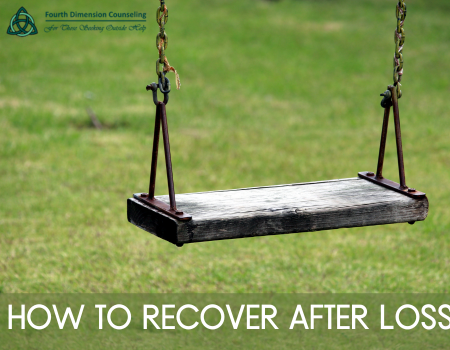Loss is an inevitable part of life. It can come in many forms – the death of a loved one, the end of a relationship, the loss of a job, or even the loss of a dream. Whatever the nature of your loss, it can leave you feeling empty, heartbroken, and adrift. There’s no one-size-fits-all approach to recovery. Grief, the emotional response to loss, is a personal journey. However, there are some steps you can take to navigate your way through this difficult time.
Acknowledge Your Emotions
 Acknowledging your emotions is the first step towards healing. Avoid bottling them up or pretending that everything is okay. Allow yourself to feel the sadness, anger, guilt, or whatever emotions arise. Bottling up emotions can hinder progress and lead to more complex issues down the road.
Acknowledging your emotions is the first step towards healing. Avoid bottling them up or pretending that everything is okay. Allow yourself to feel the sadness, anger, guilt, or whatever emotions arise. Bottling up emotions can hinder progress and lead to more complex issues down the road.
- Talk about your feelings: Talk to a trusted friend, family member, therapist, or grief counselor. Sharing your experience can be incredibly cathartic and provide valuable support.
- Write it out: Journaling can be a powerful tool for processing your emotions. Write about your memories of the person or thing you lost, your feelings of sadness or anger, and anything else that comes to mind.
- Embrace creative expression: Some people find comfort in expressing their grief through creative outlets like art, music, or poetry.
Allow Yourself to Grieve
Grief is a natural process that takes time. Don’t rush yourself or compare your recovery to others. Everyone grieves differently, and some days will be harder than others. There will be good days and bad days, moments of laughter, and waves of sadness. Allow yourself to experience the full range of emotions associated with your loss.
- Be patient: Healing doesn’t happen overnight. Be patient with yourself and allow yourself go through the process of grieving.
- Don’t isolate yourself: It’s tempting to withdraw from social interaction during times of grief. However, spending time with loved ones can offer much-needed comfort and support. Surround yourself with positive and understanding people who can listen without judgment.
- Practice self-care: Your physical and mental health are crucial during this difficult time. Make self-care a priority by eating nutritious foods, getting adequate sleep, exercising regularly, and participating in activities that you love and enjoy.
Find Ways to Honor Your Loss
Finding ways to honor your loss can be a powerful step towards healing. Here are a few ideas:
- Create a memorial: Plant a tree, create a memory box, donate to a charity in the name of your loved one, or write a letter expressing your feelings.
- Visit a special place: If you lost a loved one, visit a place that holds special memories for the two of you.
- Share stories and memories: Talk to friends and family about the person you lost. Sharing stories can keep their memory alive and provide comfort.
Seek Professional Help if Needed
There’s no shame in seeking professional help for grief. A therapist can provide guidance, support, and coping mechanisms to help you navigate the grieving process. They can also help you identify and address any underlying mental health issues that may be present.
A professional will be able to assist you if these signs occur in your life:
- Your grief is affecting your daily life.
- You’re finding it difficult to manage the emotional pain.
- You experience physical symptoms such as fatigue, loss of appetite, or trouble sleeping.
- You have thoughts of self-harm, or hurting others.
Moving Forward
Healing from loss is a process, not an event. There will be setbacks along the way, but with time and self-compassion, you will begin to feel stronger and more resilient. Here are some tips for to help you move on:
- Focus on the present: While honoring memories is important, it’s also crucial to focus on the present moment. Find ways to enjoy life again, even if it feels difficult at first.
- Set small goals: Setting small, achievable goals can give you a sense of accomplishment and help you move forward.
- Find new meaning: Loss can create an opportunity for growth. Consider what lessons you’ve learned from your experience and how you can use them to move forward in a positive way.
- Embrace life: Don’t let loss define you. Allow yourself to experience new things, build new relationships, and find joy in life again.
Loss is a universal experience, and there are people who care about you and want to support you through this difficult time. With time, self-compassion, and the support of loved ones, you will heal and find a way to carry your loss. You can reach out to Fourth Dimension Counseling for help.
